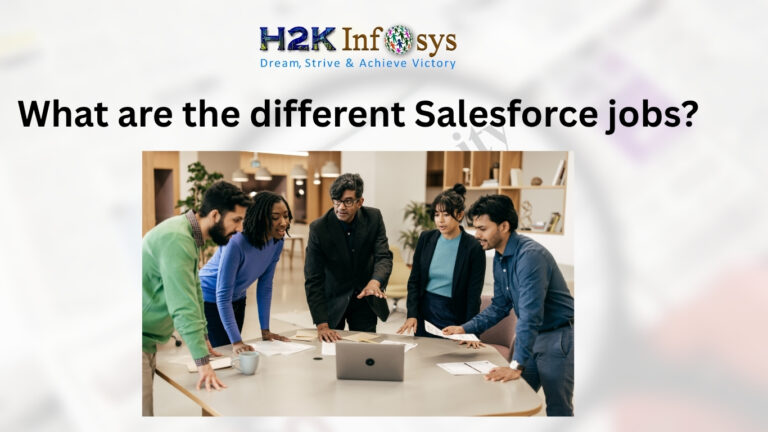Introduction
In the world of software development, understanding Object Oriented Programming (OOP) is crucial. If you are starting your journey to become a Java Full Stack Developer, mastering OOP concepts is the foundation. Java is widely known for its powerful support of OOP principles, which make coding modular, scalable, and reusable. According to Statista, Java remains one of Top languages globally, with over 65% developer adoption in 2024. In this post, we will break down OOP concepts in Java, explore their real-world applications, and provide practical examples to solidify your understanding. By the end, you will know why learning OOP in Java can transform your programming career.
What is Object Oriented Programming?
Object-Oriented Programming (OOP) is a programming paradigm that uses “objects” to represent data and methods. Instead of focusing on procedural steps, OOP organizes code into reusable objects that model real-world entities.
In Java programming, the four pillars of OOP include:
- Encapsulation
- Abstraction
- Inheritance
- Polymorphism
Encapsulation in Object-Oriented Programming
Encapsulation is one of the fundamental principles of object-oriented programming (OOP). It refers to the bundling of data and methods that operate on that data within a single unit, typically a class. Encapsulation restricts direct access to some of an object’s components, which is a means of preventing unintended interference and misuse.
Let’s dive into each concept with detailed explanations and practical examples.
class Car {
private String model; // Private variable - cannot be accessed directly
private int speed;
// Getter Method
public String getModel() {
return model;
}
// Setter Method
public void setModel(String model) {
this.model = model;
}
public void accelerate() {
speed += 10;
System.out.println("Car speed is: " + speed);
}
}
public class Main {
public static void main(String[] args) {
Car myCar = new Car();
myCar.setModel("Toyota Corolla");
System.out.println("Car Model: " + myCar.getModel());
myCar.accelerate();
}
}Output:
Car Model: Toyota Corolla
Car speed is: 10
In the example, the model and speed variables are private. We interact with them using getter and setter methods, protecting the data.
Why It Matters:
Encapsulation keeps your code secure and improves maintainability by allowing controlled access to data.
Abstraction: Hiding Complexity
Abstraction is about hiding implementation details and showing only essential features. abstract class In Java and interfaces are used for abstraction.
Real-World Example:
When you use an ATM, you simply input a PIN and select actions like withdraw or transfer. The internal banking processes are hidden from you.
Code Example:
abstract class Bank {
abstract void accountType(); // Abstract method
}
class SavingsAccount extends Bank {
@Override
void accountType() {
System.out.println("This is a Savings Account.");
}
}
class CheckingAccount extends Bank {
@Override
void accountType() {
System.out.println("This is a Checking Account.");
}
}
public class Main {
public static void main(String[] args) {
Bank myAccount = new SavingsAccount();
myAccount.accountType();
}
}Output:
This is a Savings Account.
Why It Matters:
Abstraction simplifies code by focusing on what an object does rather than how it does it. It promotes cleaner and more modular designs.
Inheritance: Promoting Code Reusability
Inheritance allows a class (child) to inherit properties and methods from another class (parent). It supports reusability and reduces code redundancy.
Real-World Example:
A child inherits traits (like eye color) from their parents.
Code Example:
class Vehicle {
String brand = "Toyota";
public void honk() {
System.out.println("Beep Beep!");
}
}
class Car extends Vehicle {
public void displayBrand() {
System.out.println("Car Brand: " + brand);
}
}
public class Main {
public static void main(String[] args) {
Car myCar = new Car();
myCar.honk();
myCar.displayBrand();
}
}Output:
Beep Beep!
Car Brand: Toyota
Why It Matters:
Inheritance promotes reusability by enabling shared functionality across multiple classes.
Polymorphism: Enhancing Flexibility
Polymorphism means many forms. In Java, it allows a single method or interface to operate in different ways based on the object that calls it.
Real-World Example:
A person can act as a parent, employee, or friend depending on the situation.
Code Example:
class Animal {
void sound() {
System.out.println("Animals make sounds");
}
}
class Dog extends Animal {
@Override
void sound() {
System.out.println("Dog barks");
}
}
class Cat extends Animal {
@Override
void sound() {
System.out.println("Cat meows");
}
}
public class Main {
public static void main(String[] args) {
Animal myDog = new Dog();
Animal myCat = new Cat();
myDog.sound();
myCat.sound();
}
}Real-World Applications of OOP in Java
- Web Applications: Frameworks like Spring Boot use Java’s OOP principles for modular web development.
- Android Development: Java is a core language for Android apps due to its scalability and reusability.
- Enterprise Solutions: Companies use Java for large-scale Enterprise Applications like CRM and ERP systems.
- Gaming Development: Popular games like Minecraft rely on Java’s OOP structure for dynamic gameplay.
Why Learn OOP with H2K Infosys’ Java Full Stack Developer Course?
Object Oriented Programming (OOP) is a foundational concept in modern software development, making it a must-learn skill for aspiring developers. At H2K Infosys, our Java Full Stack Developer Course is designed to equip you with a deep understanding of OOP principles and their real-world applications. Here’s why learning OOP through our comprehensive program can be a game-changer for your career:
1. Master the Core of Java Development
Java, being one of the most popular programming languages, relies heavily on Object Oriented Programming principles. With our course, you’ll gain mastery over OOP concepts like inheritance, polymorphism, encapsulation, and abstraction. These skills are crucial for building robust and scalable applications.
2. Hands-On Learning Experience
Our course emphasizes practical learning, allowing you to apply OOP concepts in real-world projects. Through interactive coding sessions, assignments, and live projects, you’ll not only understand the theory but also learn how to implement OOP in Java effectively.
3. Industry-Relevant Curriculum
H2K Infosys’ curriculum is tailored to meet industry standards, ensuring you are job-ready upon course completion. We cover advanced topics like Spring, Hibernate, and RESTful APIs, all of which leverage Object Oriented Programming to build enterprise-level applications.
4. Learn from Expert Instructors
Our instructors bring years of industry experience to the classroom. They provide in-depth explanations of OOP concepts and guide you through their practical applications, making complex topics easy to grasp.
5. Boost Your Career Prospects
Proficiency in Object Oriented Programming and Java Full Stack Development opens doors to a wide range of opportunities in the tech industry. From software developer roles to architect-level positions, mastering OOP with H2K Infosys can significantly enhance your career trajectory.
6. Flexible Learning Options
Whether you’re a working professional or a student, our flexible learning schedules and online classes ensure that you can learn at your own pace. Our supportive learning environment further enhances your educational experience.
7. Comprehensive Support
From live Q&A sessions to one-on-one mentoring, H2K Infosys provides unparalleled support throughout your learning journey. Our career guidance and placement assistance ensure you’re prepared for job interviews and career growth.
At H2K Infosys, our Java course goes beyond theory. You will:
- Learn hands-on programming with real-world projects.
- Master OOP principles for modular and scalable coding.
- Gain expertise in industry-standard tools like Spring Boot and Hibernate.
- Be ready to take on Full Stack Developer roles with confidence.
Our expert instructors ensure that you develop skills that employers value in 2024 and beyond.
Key Takeaways
- Encapsulation ensures data protection and controlled access.
- Abstraction hides complexity and promotes cleaner code.
- Inheritance enables code reusability.
- Polymorphism enhances flexibility with dynamic behavior.
Conclusion:
Mastering Object-Oriented Programming is essential for every Java programmer. With our Java Full Stack Developer course, you can build practical skills, gain real-world experience, and launch your dream career. Enroll at H2K Infosys today and take the first step toward becoming a sought-after developer.
Start your journey with H2K Infosys’ Java course today and unlock your potential in Java programming





























